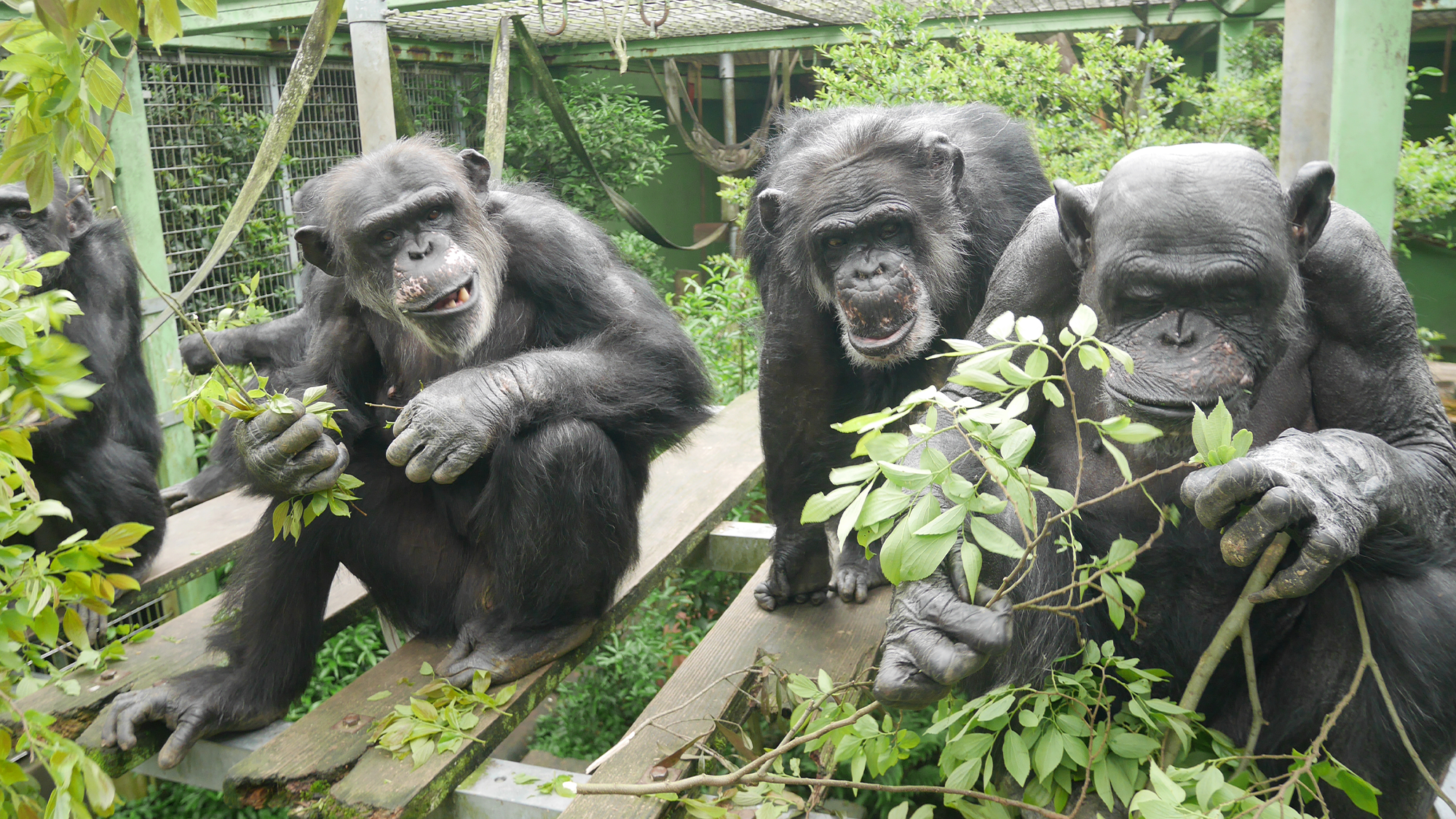Gadgets
Peeing is contagious for chimpanzees

Chimpanzees seem to have a contagious need to pee, according to a study published in the journal Current Biology on January 20. When one chimpanzee urinates, others in the group are more likely to follow suit. This behavior, known as “contagious urination,” may have deep evolutionary roots in humans and chimpanzees, our closest relatives.
“In humans, urinating together can be seen as a social phenomenon,” explained study co-author and Kyoto University evolutionary biologist Ena Onishi. “An Italian proverb states, ‘Whoever doesn’t pee in company is either a thief or a spy,’ while in Japanese, the act of urinating with others is referred to as ‘Tsureshon.’ This behavior is represented in art across centuries and cultures and continues to appear in modern social contexts.”
Onishi and colleagues decided to investigate this behavior when they noticed that chimpanzees in the sanctuary often urinated at the same time. They wanted to explore whether urination could exhibit a similar contagious aspect as yawning in humans.
The study involved observing peeing behaviors in 20 chimpanzees at the Kumamoto Sanctuary. Over 600 hours, they recorded 1,328 instances of urination. They analyzed the data to determine if urination was synchronized over time and influenced by proximity to others or social factors.
The researchers found that urination events were significantly more synchronized than would be expected by random chance. The likelihood of contagious urination increased when a chimpanzee was closer to the initial urinator.
Lower-ranking individuals in the group were more likely to urinate when others were doing so. This suggests that urination patterns are influenced by social hierarchy and may follow a dominance structure within the group.
“We were surprised to discover that the contagion pattern was influenced by social rank. Since there were no prior studies on contagious urination in any species, we drew parallels to contagious yawning, another semi-voluntary physiological behavior,” Onishi stated. “Based on this, we initially expected that any social influences might resemble those seen in yawning—such as stronger contagion between socially close pairs.”
Contrary to their expectations, social closeness did not impact the contagious urination behavior. Instead, social rank had the strongest influence, with lower-ranking individuals being more likely to follow suit.
[ Related: Like humans, chimps often perform tasks differently when crowds are watching. ]
The unexpected finding regarding social hierarchy and ranking could indicate hidden leadership that coordinates group activities, strengthens social bonds, or reveals an attention bias among lower-ranking individuals. This research sheds light on the social significance of seemingly mundane yet essential behaviors like urination.
Further studies could delve into the specific functions and mechanisms underlying contagious urination in chimpanzees and explore if similar behavior exists in other species.
I am coming up with a new version
-

 Destination9 months ago
Destination9 months agoSingapore Airlines CEO set to join board of Air India, BA News, BA
-

 Breaking News10 months ago
Breaking News10 months agoCroatia to reintroduce compulsory military draft as regional tensions soar
-

 Gadgets4 months ago
Gadgets4 months agoSupernatural Season 16 Revival News, Cast, Plot and Release Date
-

 Tech News1 year ago
Tech News1 year agoBangladeshi police agents accused of selling citizens’ personal information on Telegram
-

 Productivity12 months ago
Productivity12 months agoHow Your Contact Center Can Become A Customer Engagement Center
-

 Gadgets4 weeks ago
Gadgets4 weeks agoFallout Season 2 Potential Release Date, Cast, Plot and News
-

 Breaking News10 months ago
Breaking News10 months agoBangladesh crisis: Refaat Ahmed sworn in as Bangladesh’s new chief justice
-

 Toys12 months ago
Toys12 months ago15 of the Best Trike & Tricycles Mums Recommend











